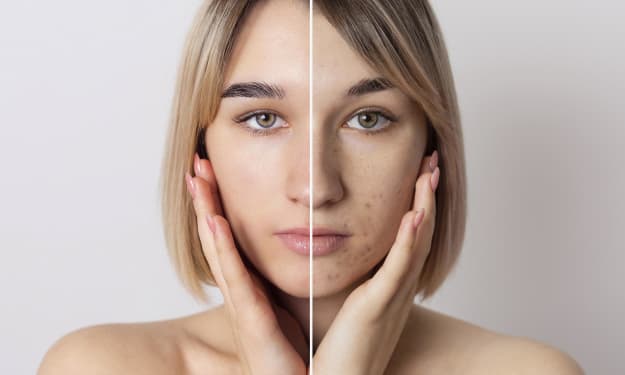5 Ways To Reduce Allergens in the Office
Here are five key steps to creating a more comfortable work environment for allergy sufferers.

They may seem harmless, but common allergic reactions like sneezing, watery eyes, and nose congestion take a heavy toll on the body. In fact, allergies are the 6th leading cause of chronic illness in the U.S.
Common allergens in the office include dust and dust mites, mold, cigarette smoke, pollen, animal dander, and even perfumes and colognes worn by colleagues. They are everywhere, so keeping the office environment allergen-free takes a multi-faceted approach.
Here are five key steps to creating a more comfortable work environment for allergy sufferers.
1. Install an Air Filtration System
Airflow is essential to reducing allergens, but you can’t always just open a window, especially not in the spring and summer when there is pollen in the air. That only introduces more allergens. Your best bet for minimizing indoor air irritants is a heating, ventilation, and air conditioning (HVAC) system that purifies the air already circulating. Alternatively, you can use an indoor air purifier.
Whichever route you take, the most important component in an HVAC system and air purifier is a High-Efficiency Particulate Air (HEPA) filter. These are the most effective air filters, originally designed for use in gas masks and now the efficiency standard in workplaces.
However, using HEPA filters is only half the job, which brings up the next point.
2. Clean your HVAC System and Replace the Filters
While HEPA filters are the most effective at cleaning the air, there’s only so much they can do if the system is clogged and filthy. Air filtration systems work by circulating air through a filter to trap dust, pollen, and most airborne particles. With time, these contaminants build up, necessitating filter replacement.
A clogged filter reduces the efficiency of your air purifier and compromises air quality. The moist build-up also creates a favorable environment for bacteria and mold.
To ensure optimum air quality, clean office HVAC systems and replace filters according to manufacturers' recommendations—typically every 60 to 90 days.
3. Hire Professional Cleaners

Particles suspended in the air are only a part of the problem—floors, desks, and shelves also hold dust and other allergens and so should be regularly dusted and cleaned. Carpets and upholstered furniture are especially notorious for carrying allergens.
Hiring commercial cleaners is the best way to ensure nothing is overlooked in this crucial component of allergen control. They ensure that the job is done frequently and correctly, using appropriate cleaning methods and tools. Professional cleaners also have experience cleaning hard-to-reach places such as fans and ceilings—surfaces that accumulate dirt quicker than you think.
Make it easy for your cleaners to do their job by encouraging employees to keep personal workspaces clean and free of clutter.
4. Clean What You Can’t See
Speaking of hard-to-reach areas, when was the last time the air ducts in your office were cleaned? It’s easy to keep desktops and floors clean, but hidden surfaces are often neglected even though they contribute a lot to poor air quality.
An incredible amount of dirt collects on these surfaces over time, and bacteria and mold love dark, damp areas like air conditioner drain pipes.
Mold can easily spread through the office, ejecting spores that affect employees’ health.
Some types of mold are extremely toxic. If you notice any mold-like growth in your office, the best mode of action is to call in experts who will assess the situation before getting rid of it.
5. Use Natural, Unscented Cleaning Supplies
Ironically, the cleaning products you use in your office to reduce allergens might be causing the problem.
Research has linked some chemicals in cleaning products to allergies and asthma. One study, for example, identified bleach use to be a risk factor for asthma and other adverse respiratory effects. Another showed that formaldehyde can cause a skin allergy called contact dermatitis. Formaldehyde is a preservative commonly used in detergents and air fresheners.
Where possible, use natural cleaners to reduce allergy triggers in the office. However, natural does not automatically mean safe. For example, some people are sensitive to citric acid which is a compound in natural citrus fragrances. This is why natural unscented cleaners are often the best bet.
Create a Better Work Environment
Offices can be challenging for people with allergies, which is why it's essential to keep the space clean and allergen-free. This not only promotes comfort among your employees but also protects their health.
About the Creator
Jordan McDowell
Jordan McDowell is a writer and second amendment rights advocate. As a proud advocate for responsible gun rights nationwide, he writes about recreational hunting as well as the latest developments in state and national legislation.






Comments
There are no comments for this story
Be the first to respond and start the conversation.